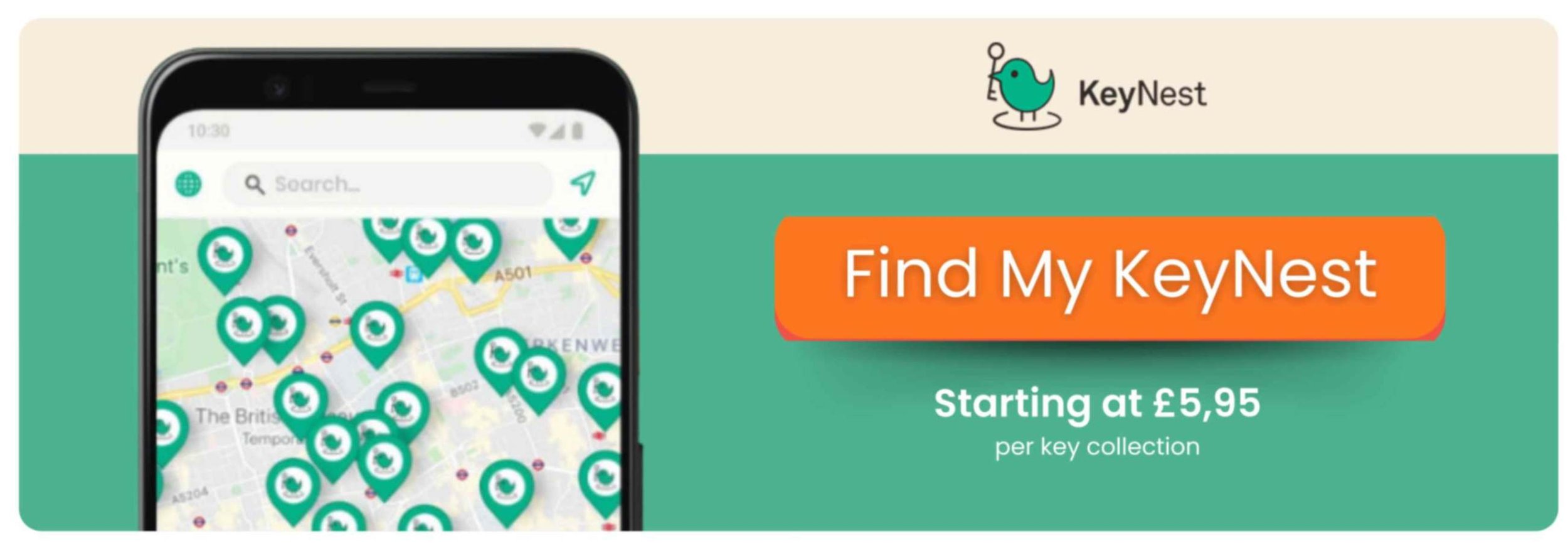Over 1500 key exchange locations nationwide
Airbnb & Short-Term Rental Regulations In London
London, a bustling global metropolis and a popular tourist destination, presents countless opportunities for Airbnb hosts. With millions of visitors flocking to the city each year, holiday lets have become a lucrative option for property owners. However, navigating the regulatory landscape is essential to guarantee legal compliance and a seamless hosting experience.
Regulations in London are enforced to maintain a balance between tourism and the needs of permanent residents. Key factors to consider include planning permissions, tax obligations, health and safety standards and limits on rental durations. Understanding these rules not only helps you avoid penalties but also guarantees a better experience for your guests. Staying up-to-date with evolving legislation is crucial, as authorities are continually making adjustments to accommodate changes in the market.
Moreover, adherence to laws demonstrates your professionalism and builds trust with guests. By understanding and complying with Airbnb rules, you can maximize the potential of your property while maintaining positive relationships within the community. In this guide, we'll explore the essential laws and practical tips to help Airbnb hosts succeed in London’s dynamic short-term lets market.
1. Planning Permissions And Zoning Regulation Level
When listing your property on Airbnb in London, understanding planning permissions is critical. The city's laws help maintain a balance between short-term rentals and long-term housing availability.
Properties used as short-term rentals for more than 90 nights annually require planning permission from the local council.
Failure to obtain permission can lead to penalties or enforcement actions from local authorities.
Different boroughs may have additional rules, so it's crucial to check with your local council.
Hosts should guarantee that their property is in a permitted zoning area for short-term rentals.
Understanding zoning classifications will help you determine if your listing complies with local requirements.
Seeking legal advice or consulting a property expert can help clarify complex regulations.
2. Licensing Requirements For Short-Term Rental Homes
Some boroughs in London require specific licenses for Airbnb properties to guarantee compliance with local laws. Licensing helps authorities monitor and regulate the short-term rental market while maintaining community safety and housing availability. Requirements can vary by borough, with some mandating additional fire safety measures or noise control guidelines.
Failure to obtain the correct license may result in fines or legal action. Stay agents should research their borough's specific rules to avoid potential penalties. Maintaining proper documentation and adhering to license conditions can help guarantee a smooth hosting experience.
Check if your borough has mandatory licensing schemes for short-term rentals.
Licensing may involve inspections to guarantee the property meets safety and health standards.
Properties that do not meet licensing criteria may be disqualified from short-term rental activities.
Guarantee that your property complies with fire safety, electrical safety, and structural regulations.
Keep your license up-to-date and renew it as required to maintain legal adherence.
Hosting without the necessary licenses can result in fines or property restrictions.
3. Compliance With The Limit Of 90-Day Rule
The 90-Day rule is a vital regulation for Airbnb stay agents in London, limiting short-term rentals to 90 nights per calendar year without planning certificate. Airbnb automatically tracks bookings and may block additional reservations once the limit is reached.
This rule applies to entire properties but does not affect private room listings. Stay agents who exceed the limit risk penalties or property restrictions. Keeping accurate booking records helps guarantee adherence and avoid potential legal issues.
Stay agents cannot rent out their property for more than 90 days per calendar year without obtaining planning permission.
Airbnb automatically tracks the number of nights and may prevent further bookings once the limit is reached.
This rule applies to entire homes, not just individual rooms within a property.
Properties that breach the 90-day rule may face penalties or removal from Airbnb listings.
Tracking your bookings and keeping accurate records will help you stay compliant.
Stay agents with multiple properties should manage their listings carefully to avoid breaches.
4. Tax Obligations Overview For Airbnb Hosts In London
Understanding tax obligations is crucial for Airbnb stay agents in London to remain compliant and financially stable. Stay agents must declare their rental income to HMRC and may need to pay income tax depending on their earnings. The Rent a Room Scheme offers a tax-free allowance of up to £7,500 annually for renting out furnished accommodation. VAT registration may be required if earnings exceed the threshold, currently set at £85,000.
Additionally, stay agents may be subject to council tax based on property usage. Keeping accurate records of expenses and income helps streamline tax filing and identify potential deductions. Seeking advice from a tax professional can guarantee accurate adherence and maximize financial benefits.
Stay agents must declare rental income on their annual tax returns.
You may be eligible for the Rent-a-Room Scheme, which allows tax-free income up to a certain threshold.
Keep detailed records of your rental income and expenses for tax purposes.
VAT registration may be required if your rental income exceeds the VAT threshold.
Failure to comply with tax laws can result in fines or audits.
Consult a tax advisor to guarantee accurate reporting and maximize allowable deductions.
5. Ensure Health And Safety Requirements For Airbnb Properties
Health and safety requirements for Airbnb properties are crucial for guaranteeing a safe environment for tenants. Meeting these requirements is not only a legal obligation but also an essential part of delivering a positive tenants experience. Property owners must guarantee that their accommodations comply with local laws, including smoke detectors, fire extinguishers, and safe electrical systems.
Additionally, clear instructions for emergency exits and first aid kits should be provided for tenants convenience and security. Adhering to these standards helps build trust and boosts the property's reputation.
Properties must comply with fire safety standards including the installation of smoke detectors and fire extinguishers.
Electrical and gas safety inspections are mandatory, with certification required.
Proper ventilation and heating systems must be in place for tenants comfort.
Stay agents should conduct regular property inspections to identify and address potential hazards.
First-aid kits should be readily available for emergencies.
Clear instructions for emergency exits and contact information should be provided to tenants.
6. Staying Updated On Regulatory Legislation Changes In London
Staying updated on regulatory changes in London is vital for short-term rental stay agents. The landscape is constantly evolving, with new laws being introduced regularly. Stay agents must stay informed to guarantees they comply with the latest legal requirements, avoiding penalties or fines.
Monitoring updates from local authorities and industry groups helps keep properties in good standing. Being proactive in adapting to these changes guarantees the success and longevity of the rental business.
Subscribe to official newsletters from local councils to receive regulatory updates.
Join stay agents associations or communities to stay informed about changes in the industry.
Follow news channels and blogs focused on property laws in London.
Regularly review your adherence with existing laws to avoid legal issues.
Engage with legal and property experts for advice on upcoming regulatory changes.
Being proactive in understanding changes will help you adapt quickly and maintain adherence.
Navigating London’s Airbnb Regulations With Confidence
Understanding and adhering to Airbnb laws in London is essential for a successful and compliant short-term rental business. By staying informed about planning permissions, licensing requirements, and health and safety laws, stay agents can avoid legal complications and provide a seamless experience for tenants. Navigating the 90-night rule and fulfilling tax obligations further ensures that your hosting journey remains hassle-free. Adherence not only protects you from potential fines but also enhances your reputation as a responsible stay agent.
Proactive measures, such as joining stay agent communities and consulting experts, can help you stay up-to-date with evolving regulations. Regular property checks and meticulous record-keeping contribute to a smooth operation. Ultimately, following the guidelines laid out in this article empowers you to operate legally and ethically. By doing so, you'll maximize your property's potential and contribute positively to London's thriving short-term rental market.
About Us
KeyNest offers you a convenient service for storing and exchanging your property keys. You can drop off a key at any of the 7,000+ locations in our network, so there’s one such Point located next to your property.
Guests, cleaners or contractors can then collect the key securely from a KeyNest Point or KeyNest Locker which is usually open 24/7. You'll be notified each time the key is picked up or returned, and you can even customize check-in and check-out times. By leveraging technology and a global network of locations, KeyNest continues to redefine property management, offering solutions tailored to meet the evolving needs of the rental market..
KeyNest has an ever-expanding global network of locations located just minutes from your property. To find out more you can contact us.
Neil Beltran 30 January 2025



